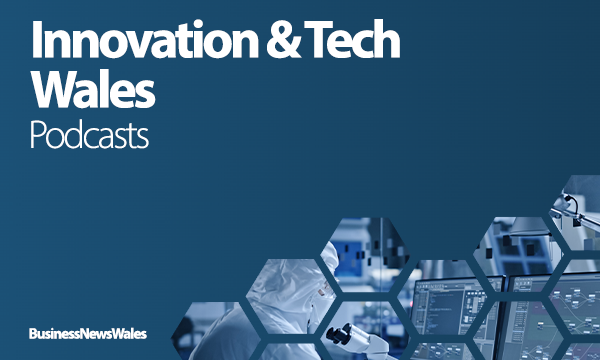Greater and more effective adoption of AI could hold the key to driving productivity and competitiveness throughout 2025.
Speaking to Business News Wales for our January podcast series, industry leaders from across the technology and business landscape have highlighted AI’s potential to automate processes, improve efficiency, and provide cost-saving opportunities.
However, there are also calls for realism to ensure that enthusiasm around AI translates into realistic and meaningful outcomes and avoids the overhyped claims which have contributed to past technology bubbles.
It comes as the UK Government launches its AI Opportunities Action Plan which it says aims to “shape the AI revolution on principles of shared economic prosperity, improved public services and increased personal opportunities”.
The Welsh Government said Wales was “uniquely placed to benefit from the AI infrastructure plans, with work already underway to develop tech hubs, shared resources and data centres”.
Sameer Rahman, CEO and founder of DataMonet, told Business News Wales’ Innovation & Technology Wales podcast that he believes AI’s adoption among SMEs is set to accelerate this year. “The world is talking about generative AI,” he said, highlighting its practical applications for smaller businesses. He points to examples such as AI tools that cluster customer complaints by theme and provide standardised responses: “Thirty percent of complaints can be dealt with via AI, for example, through intelligent decision-making and giving the customer back whatever the request initially was.”
For many businesses, such tools offer a way to streamline day-to-day operations. Rahman emphasises that effective use of AI starts with data quality.
“The foundations of AI are laid on data,” he said.
“You have to look at your data to figure out whether that use case is technically and practically feasible.”
Sara Boltman, founder and CEO of Butterfly Data, believes AI can provide tangible productivity gains by taking on repetitive tasks. “Rather than being a scary new technology, if we use AI to automate those boring manual tasks, then we can collaborate with it to improve the way we work,” she explained on Business News Wales’ Finance & Investment Wales podcast. Boltman sees growing opportunities in areas such as robo-advisors for marketing, HR, and customer engagement, which can provide tailored strategies based on business needs.
However, business leaders stress that infrastructure will be critical to AI’s successful deployment. Ben Cottam, head of Wales for the Federation of Small Businesses (FSB), notes the importance of connectivity, telling Business News Wales’ Economy & Infrastructure Wales podcast: “If we get 5G coverage right, and we get a speed that allows businesses to exploit AI-based platforms, that is probably one of the most tangible productivity stories for the smallest businesses.” Improved access to reliable networks, he said, will allow SMEs to adopt tools that help with customer acquisition, content creation, and business planning.
While optimism about AI’s potential remains high, some caution against unrealistic expectations. Boltman warns that AI models are only as effective as the data they are trained on. “If businesses haven’t collected clean, accurate data over time, the outcomes will be flawed,” she said. This, she argues, highlights the need for SMEs to lay strong data foundations before investing in AI tools.
Speaking on the Finance & Investment Wales podcast, Professor Arman Eshraghi, Chair of Finance and Investment at Cardiff Business School, draws comparisons to the dotcom bubble of the early 2000s.
“Unfortunately, we’re seeing companies attach ‘AI’ to products that are little more than traditional algorithms,” he said.
“We need to be careful not to overinflate expectations, as we’ve seen before when valuations soared simply because ‘dotcom’ appeared in company names.”
Eshraghi also highlights regulatory gaps as AI begins to play a greater role in financial services.
“AI is already informing credit scoring, fraud detection, and robo-advice,” he said.
“But when automated tools give poor advice, who is accountable? Regulators will need to address this as AI becomes more widespread.”
Despite these challenges, there is clear optimism about AI’s potential to support Welsh businesses in improving their competitiveness. Phil Sampson, head of deals for PwC Wales, believes 2025 will see “other sectors recognise the ability of AI to improve their margins and profitability.”
This pragmatic view of AI aligns with calls for Welsh Government support to help SMEs deploy the technology effectively. Rahman argues that incentives should focus on “the application of AI, not just the technology itself.”














